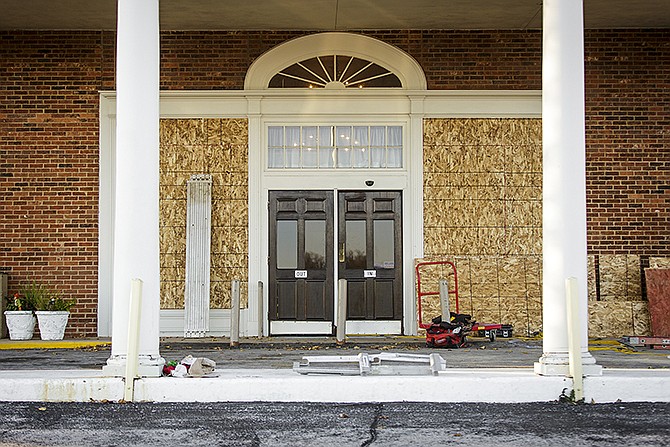The owners of the former Truman Hotel & Conference Center may not be finished seeking financial assistance from Jefferson City to redevelop the now unused property.
After a failed attempt to secure Tax Increment Financing (TIF) earlier this year, the Puri Group of Enterprises is now seeking assistance on a smaller scale through the urban renewal program.
Urban renewal, part of Missouri's Land Clearance for Redevelopment Authority (LCRA) law encouraging redevelopment of blighted areas, would allow the Puri Group to apply for a 10-year tax abatement on the property. To qualify, the City Council must designate the property as blighted, and both the City Council and the LCRA - in this case, the Jefferson City Housing Authority - must approve an urban renewal plan for the area.
"I was disappointed that the council didn't approve it (the Truman Hotel TIF)," said former Jefferson City mayor George Hartsfield, who is working with the Puri Group to navigate the urban renewal process. "I think it's a shot in the arm for our economy."
Hartsfield announced the group's plans to pursue a blight designation for the Truman Hotel property during the public comment portion of the Nov. 7 City Council meeting.
When applying for the TIF, the Puri Group had proposed a redevelopment plan that included building two new hotels, one featuring a restaurant, both connected to a renovated version of the Truman Hotel's existing 24,000-square-foot meeting space.
That redevelopment plan likely would remain the same through the urban renewal process, Hartsfield said.
However, while the TIF would have lasted up to 25 years for a maximum $8.89 million reimbursement to the developer, the tax abatement available through urban renewal would last only 10 years. The abatement would likely pay out less than the proposed TIF, as both methods of public financial assistance benefit developers based on the degree to which property values increase based on redevelopment during the statutory time frame.
Jefferson City Counselor Ryan Moehlman confirmed the Puri Group has requested consideration under the LCRA law but said it's too soon to tell when the process might be put in motion.
"We are just taking in the information and determining when and what the first step needs to be," Moehlman said.
The first formal step is City Council approval of a blight designation. Valbridge Property Advisors completed a blight study of the property in 2015 as part of the Puri Group's TIF application, and that study should suffice as grounds for the blight designation consideration, Moehlman said.
Fourth Ward Councilman Glen Costales discussed proposing such a resolution with four fellow council members in an Oct. 25 email, obtained by the News Tribune through an open records request. In that email and another sent to Moehlman, Costales proposed introducing the resolution at the Nov. 7 City Council meeting, which didn't end up happening.
"The overall thing would be a lot of jobs for the area for the economy, and it would be jobs in all three phases - the demolition, construction and operation phases," Costales told the News Tribune. During the TIF application process, the Puri Group estimated the project would generate $62.8 million in hotel payroll over 23 years.
Costales said he's unsure of when a proposed resolution for blight designation might reach a council meeting, but he is confident it could gain approval when it does. When the City Council's 5-5 vote in September put TIF negotiations to rest for good, some of the dissenting council members were concerned with the TIF's financing arrangement including lodging tax funds - so they weren't necessarily opposed to the project itself, he said.
Moehlman said city officials are awaiting more details about the proposed urban renewal plan for the Truman Hotel property before putting a resolution on a meeting agenda. "While I don't think it's a requirement of the LCRA act to have what the proposed uses are before making any determination of blight, I think it's probably best practice to have that information on hand, so that way you're not impacting property with the blight determination before there's a plan on moving forward," he said.
Hartsfield said he hopes to see the blight designation resolution as soon as the next scheduled City Council meeting, set for Nov. 21.
Assuming a blight designation was approved, the Housing Authority then would determine whether to create an urban renewal plan for the area. That plan, once completed, would go to the Jefferson City Planning and Zoning Commission to determine whether it fits with the city's comprehensive plan. The Housing Authority would consider any changes recommended by the commission, then send the urban renewal plan back to the City Council for final approval.

